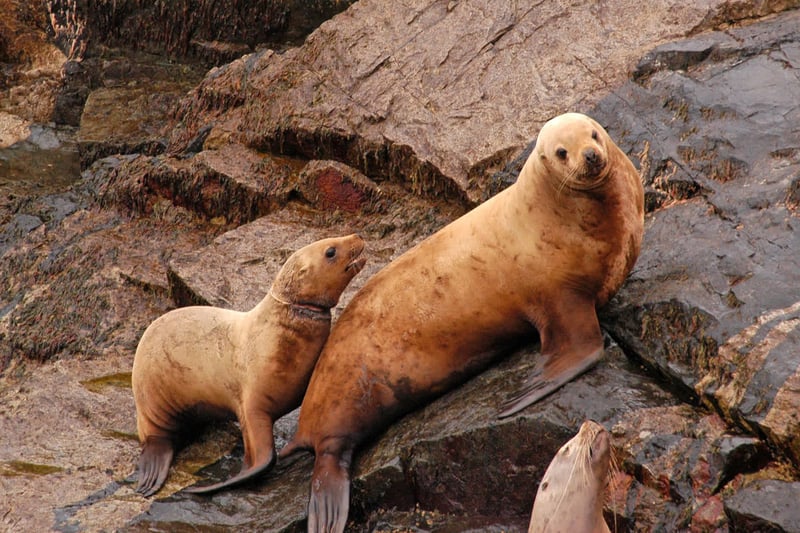
Riding the wave of change for sea animals as 11 countries sign up to tackle ‘ghost gear’
Blog
A new Oxford University report shows that some parts of the ocean are near tipping point, so the commitment from 11 UN countries to protect ocean life comes at a critical time
Working in partnership at the UN Ocean Conference
We were at the UN Ocean Conference in June to encourage countries to recognise that the issue of lost and abandoned fishing gear, nets, lines and traps – ’ghost gear’ – greatly affects our oceans and the life within them.
We joined United Nations member countries and other organisations from around the world to find solutions for ocean sustainability, including the issue of marine debris.
Ghost gear is four times more likely to impact marine animals by trapping, injuring, mutilating, or killing them than all other forms of marine debris combined. Ghost gear has also caused an estimated 10% decline in fish stocks globally, affecting more than 3 billion people who rely on fish as a source of protein.
Uniting to protect our oceans
At the conference, countries recognised this shared responsibility for our oceans and more than 1,393 commitments from organisations and governments were pledged, which means these groups will take action to reverse the decline in ocean health.
Voluntary commitments are initiatives voluntarily undertaken to aim to contribute to the implementation of Sustainable Development Goal 14. Ghost gear featured high on the agenda, with 11 countries signing the Statement of Support for the Global Ghost Gear Initiative (GGGI).
The GGGI is an alliance of governments, civil society, private sector and academia which we founded in 2015 to tackle the problem of ghost gear worldwide.
Belgium, Sweden, New Zealand, Tonga, Panama, The Netherlands, Dominican Republic, Tuvalu, Samoa, Palau and Vanuatu all welcomed the GGGI and supported its commitment to improve the health of marine ecosystems, protect marine animals from harm and safeguard human health and livelihoods.
Belgium will fund a vital GGGI project
Belgium also partnered with GGGI as a key sponsor and has pledged significant financial support to deliver a pilot project on the marking of fishing gear.
Mr Didier Reynders, Belgian deputy prime minister and minister of foreign and European affairs said: "We must strive to make the private sector, fishing industry, academia and governments work together to reduce the impact lost gear has on the economic sector, food security and most importantly on marine ecosystems.
"Certification and marking of gear to make it traceable and recycling of retrieved materials are some of the most promising solutions. My country supports the gear recovery initiative and recycling as a principle."
Making a difference at SeaWeb Seafood Summit
Governments, and non-governmental organisations (NGOs) like ourselves, cannot make this change alone. That’s why we also attended the SeaWeb Seafood Summit to present our best practice framework for protecting our oceans from ghost gear.
The industry is looking to become more sustainable and limit its impact on vulnerable marine ecosystems. So seafood companies, retailers and fishing industry representatives in the audience, were very receptive to the practical guidance we developed with the GGGI best practice working group, through a wide public consultation.
The framework outlines practical steps that industry can take to prevent and mitigate gear loss and its harmful and costly effects; and better manage fishing gear across different parts of the industry and business operations.
The framework is currently being finalised following a final round of feedback and will be publicly released at the end of August. We hope that industry members will adopt some of the recommendations in their corporate social responsibility schemes, and that elements will feature in standard setting and certification practices.
Partnership is vital
Ghost gear is one of the deadliest forms of marine litter. A 2016 study published in Marine Policy by Wilcox et al. found fishing-related gear to be one of the three sources of marine litter – along with balloons and plastic bags – to pose the greatest entanglement risk to marine wildlife such as seabirds, sea turtles and some of our most iconic marine mammals such as whales and dolphins.
Working in partnership with decision makers and corporates is the key to successfully and effectively addressing the problem of ghost gear. We are following up with a number of other governments, corporates and other partners worldwide to firm up commitments on how they can help. We are excited that we will be able to make some big announcements very soon!
Find out more about our Sea Change campaign and the work we do to protect marine life.